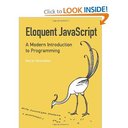Today Felinx Lee and I launched TornadoGists.org which is a site for discussing gists related to Tornado (python web framework open sourced by Facebook).
Everyone in the Tornado community seems to solve similar problems in different ways. Oftentimes, these solutions are just a couple of lines or so and not something you can really turn into a full package with setup.py and everything.
Sharing a snippet of code is a great way to a) help other people and b) to get feedback on your solutions.
The goal is to make it a very open and active project with lots of contributors. I'll be accepting and reviewing all forks but hopefully control will be opened up to all Tornado developers. Also, since the code is quite generic to any open source project Felinx and I might one day port this to rubygists.org or lispgists.org or something like that. After all, Github does all the heavy lifting and we just wrap it up nicely.



